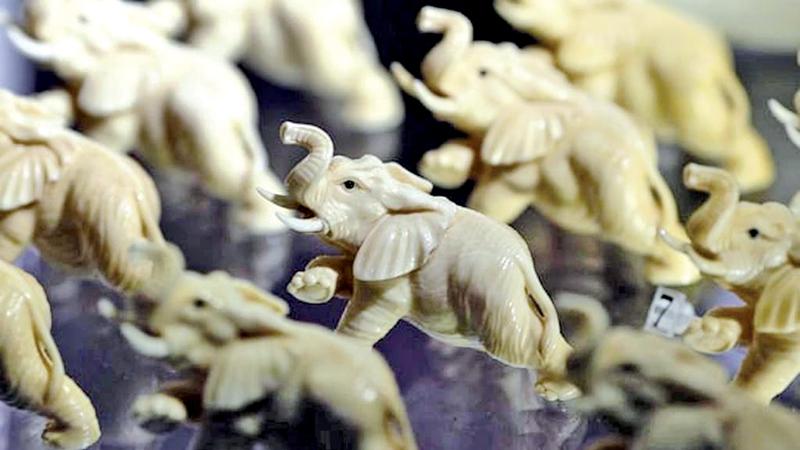
Oct 6: The UK government has bowed to campaigners and will ban the sale of ivory regardless of age, according to a new consultation.
The UK is the biggest exporter of legal ivory in the world and shutting down the trade will help prevent illegal ivory being laundered by criminals. More than 50 elephants are killed by poachers every day on average and the population of African elephants plunged by a third between 2007-14 alone, leading to warnings that the entire species could go extinct.
The international trade in ivory has been illegal since 1990 but currently the UK law allows trade in “antiques” carved before 1947, or items worked before 1990 that have government certificates. In September 2016, the then environment secretary Andrea Leadsom pledged to ban the sale of items carved before 1990, but not before 1947, although no progress was made on implementation.
The new ban, put forward on Friday by Leadsom’s successor, Michael Gove, will prohibit the sale of pre-1947 ivory. This represents a U-turn and comes as a surprise – the Conservatives removed a pledge on ivory from their 2017 general election manifesto in June that had been in the 2015 manifesto.
Gove said: “The decline in the elephant population fuelled by poaching for ivory shames our generation. The need for radical and robust action to protect one of the world’s most iconic and treasured species is beyond dispute. These plans will put the UK front and centre of global efforts to end the insidious trade in ivory.” The government was put under pressure by a wide range of campaign groups and prominent individuals including the former Conservative leader William Hague, the primatologist Jane Goodall, Stephen Hawking and Ricky Gervais. Within the Tory party, the foreign secretary Boris Johnson and the former environment secretary Owen Paterson have pressed for a complete ban.
The proposed ban does suggest a number of exceptions for antique ivory items, including musical instruments, items of significant cultural value and those containing only a small amount of ivory, which the government says do not contribute to the poaching of elephants.
The government’s move was welcomed by John Stephenson at the Stop Ivory group. “The unprecedented crisis we face – with Africa’s natural heritage being destroyed and communities put at risk due to poaching by illegal armed gangs – will only stop when people stop buying ivory,” he said. “Along with our partners, we congratulate the government on this important step and look forward to working with it to ensure the ban is implemented robustly and without delay.”
WWF said the ban must be implemented within a year, if the UK is to maintain its leading role. But Tanya Steele, WWF’s CEO, said: “This illegal trade involving organised criminals is a global problem requiring global solutions: to end it anywhere means ending it everywhere. This is about a lot more than banning ivory sales in one country. It means working with global leaders and communities around the world, particularly in China and south-east Asia, to implement bans and stop the illegal trade.” There has been significant progress in the last year to reduce demand for elephant ivory. In December 2016, China, home of the world’s largest legal and illegal ivory markets, announced it will ban the domestic trade by the end of 2017. In June, Hong Kong – the largest city market for ivory – published a bill to ban the ivory trade by 2021.
- Theguardian
